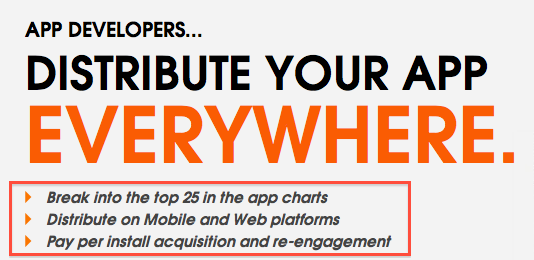Following speculation about Apple using a new App Store ranking algorithm to better promote apps by ratings and “active usage” rather than raw download numbers, TUAW reports today Apple is also effectively banning from the App Store the so-called “pay-per-install” apps – basically, applications (usually games) that let users get access to virtual goods by downloading another app, instead of paying a fee or unlocking features with in-app purchases. This practice has apparently caught the attention of Apple and the App Review Team, and several developers are reporting they’re being notified of the rejection of their software from the Store.
According to Tapjoy, several developers within their network are receiving rejection notices from Apple because their applications feature a pay-per-install promotion.
It appears Apple is somehow enforcing section 3.10 of the App Store Review Guidelines, which states:
Developers who attempt to manipulate or cheat the user reviews or chart ranking in the App Store with fake or paid reviews, or any other inappropriate methods will be removed from the iOS Developer Program.
Clearly, Apple isn’t happy with this freemium model of apps granting virtual currency and goods in exchange for another application downloaded from the Store, and we guess it’s for two reasons: a) the system inevitably “cheats” the App Store charts by inflating downloads of an app not because of quality, but because of promised benefits; b) Apple would rather see developers implementing in-app purchases, which return the company a 30% off every purchase.
As usual, Apple has every right to change the rules in its “walled garden.” In the meantime, Tapjoy, the biggest network for pay-per-install apps, says “the system is misunderstood” and that the model is actually “is beneficial to users, advertisers, and developers.”


